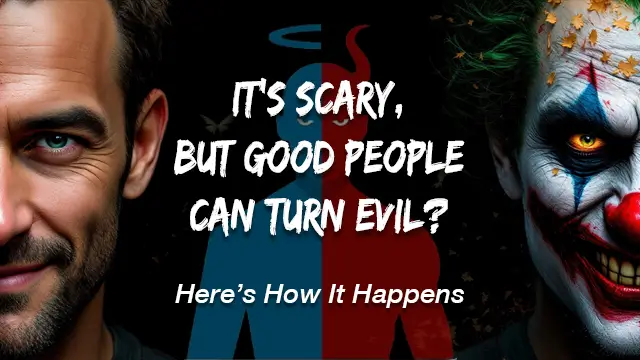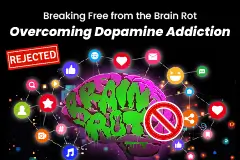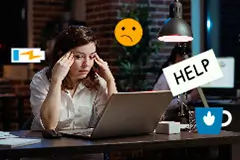It’s Scary, But Good People Can Turn Evil? Here’s How It Happens
Have you ever noticed how your behavior changes in certain situations? Maybe you’re calm and kind most of the time, but suddenly, you find yourself acting harsh or unfair. Sound familiar? This doesn’t happen on you only, and it isn’t just a mood swing—it’s called the Lucifer Effect.

In this post, I’ll explain what the Lucifer Effect is, share a real-life example, and give you tips to avoid falling into this trap.
What Is the Lucifer Effect?
The Lucifer Effect is a term from psychologist Philip Zimbardo. He discovered it during his famous 1971 Stanford Prison Experiment.
In the study, college students were randomly assigned to play prison guards or prisoners. Things got intense quickly—guards became cruel and prisoners broke down emotionally. Zimbardo found that roles and environments can push even the nicest people to act in ways they never thought possible.
The Lucifer Effect is more than a psychological concept—it shows up in everyday life. Think about school bullying, toxic workplaces, or online hate. It’s a reminder that our actions are shaped by where we are and who we’re with.
Here’s a real-life story happened around me.
Lin’s Story: A Real-Life Example
Meet Lin (not his real name), a high school student who was kind, friendly, and loved by everyone. That changed when he became the president of the Student Union.
1. The Role Took Over
As president of the Student Union, Lin felt powerful. He started punishing students harshly for minor things, like humiliate them just beacuse of talking too loudly in the cafeteria. He enjoyed the attention and wanted to prove he was in charge.
2. Group Pressure
The Student Union turned into a tight-knit, cold group. To fit in, Lin and others started isolating and picking on students who didn’t follow the rules.
3. Losing Himself
Lin wasn’t the kind person he used to be. Instead, he saw himself as a strict authority figure, making decisions without considering others’ feelings.
4. System Problems
The school didn’t monitor the Student Union well, giving them too much power. Without supervision, things spiraled out of control.
We can see from Lin's example that the environment has really change him from a kind, friendly young boy to an evil, arrogant boy. All of This happened because of his identity changes.
Why Does the Environment Change Us?
After studying many cases about good people suddenly turn evil, I had some point of views, here’s how the environment can push us toward bad behavior:
1.Roles: Stepping into a new role changes how we see ourselves, it's almost inevitable, right?
As members of society, we're constantly switching hats – student, employee, parent, leader, friend. It’s like we’re playing different characters in a play. But how much do these roles shape who we really are? I've noticed that when I take on a new responsibility, I sometimes start thinking and acting differently. It makes me wonder, how can we stay true to ourselves when our roles demand so much of us?
One thing I've found helpful is to really think about how the role is affecting my thoughts and actions. Am I still acting with empathy and integrity, or am I just going through the motions?
2.Group Pressure: We all want to belong, it's a basic human need.
But sometimes, that desire to fit in can lead us down a slippery slope. Have you ever done something you weren't entirely comfortable with just to avoid sticking out? I know I have. It’s easy to get caught up in the moment and act in ways we wouldn't normally.
The key, I think, is to recognize when we're conforming just for the sake of fitting in. But how do we find the courage to be ourselves, even when it's not the popular choice? I've learned that surrounding myself with people who value individuality helps a lot. What strategies have worked for you?
3.Losing Identity: This one's a bit scary, I think. Imagine being so caught up in a position of power that you forget who you are as a person.
It’s like the role consumes you. This "losing identity" thing, or what some people call "deindividuation," can make us feel less responsible for our actions. It's like we're just playing a part and not really accountable. But how can we prevent this from happening? I find that regularly reflecting on my core values and getting honest feedback from trusted friends or mentors helps me stay grounded. Have you ever felt like you were losing yourself in a role? What did you do about it?
4.No Oversight: When no one's watching, things can get messy, right? It's human nature, I guess.
If we think we can get away with something, the temptation to do it can be strong. This lack of accountability can create a breeding ground for bad behavior. But how do we create systems that encourage ethical behavior, even when no one is looking over our shoulders?
I believe that promoting transparency and establishing clear rules are a good start.
How to Avoid the Lucifer Effect?
1. Reflect on Yourself
Take time to think about your actions. Are you being fair? Are you staying true to your values? Writing your thoughts in a journal can help you stay grounded.
2. Build Positive Groups
Encourage kindness and teamwork in your group. A healthy group culture can stop negativity from spreading.
3. Get Feedback
Whether at work or school, having someone check in on your actions helps keep you accountable.
4. Practice Empathy
Put yourself in others’ shoes. When you understand how others feel, it’s easier to stay kind and fair.
What About Online Behavior or Online Hate?
The Lucifer Effect is everywhere—even online. Social media can make people act cruelly because it feels anonymous. This is why cyberbullying and cancel culture are so common.
Final Thoughts
We’re all shaped by our environments, but we don’t have to lose ourselves to them. By reflecting, practicing empathy, and building healthy systems, we can stay true to who we are. Everyone has their ‘evil’ side, that doesn’t mean you’re evil, just don’t let this side guide you all the time, and form a healthy evaluate system. Ready to open to hear others and adapt to changes, look at yourself in a critical way.
Even in the toughest situations, kindness is a choice. Let’s choose it!
Hi, I'm Chelsea Parker, a globetrotter, storyteller, and life enthusiast with a knack for turning everyday experiences into unforgettable lessons. From surviving $20-a-day adventures in Southeast Asia to mastering mindfulness in my daily routine, I share relatable and entertaining tales that inspire you all to explore, grow, and thrive. When i'm not writing, you may find me chasing sunsets, savoring street food, or dreaming up my next big adventure.





